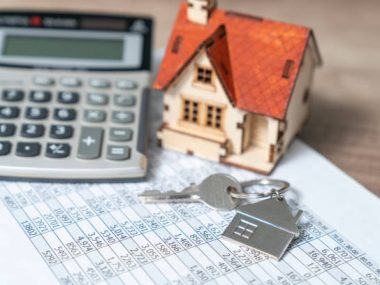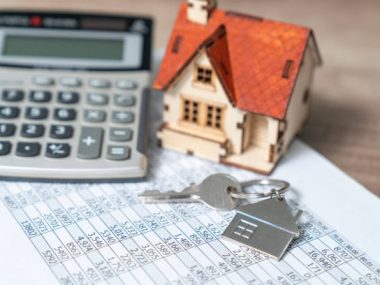Does a reverse mortgage go through probate? The interplay between financial arrangements and estate matters can often lead to questions and uncertainties, particularly when it comes to the complex world of real estate and inheritance.
One such topic that raises queries is whether a reverse mortgage, a financial tool designed to provide seniors with additional income using their home’s equity, is subject to the probate process.
Probate, the legal procedure for settling a deceased individual’s estate and distributing assets, plays a crucial role in the transition of property from one generation to the next.
In this article, we delve into the intricacies of reverse mortgages and their relationship with the probate process, shedding light on the potential implications for heirs, beneficiaries, and estate planning as a whole.
By understanding this connection, individuals can make more informed decisions about their financial arrangements and how they align with their broader estate objectives.
Also Read:
Can You Transfer a Mortgage to Another House?
What Is a Mortgage Bond? (Find Out Now)
Does a Reverse Mortgage Go Through Probate?
The question of whether a reverse mortgage goes through probate hinges on the nature of the mortgage and the legal framework surrounding estate distribution.
A reverse mortgage, designed to allow seniors to access their home’s equity as additional income, has a unique status in probate proceedings.
Generally, reverse mortgages are not considered traditional loans and are treated as non-recourse loans by lenders.
This means that the loan is typically repaid from the sale of the property, and the borrower’s estate is not held liable if the loan balance exceeds the property’s value.
As a result, reverse mortgages often do not become part of the probate process.
When the homeowner passes away, their heirs are typically given a specific period (often around six months) to decide whether to repay the reverse mortgage or sell the property.
If they choose to sell the property, the proceeds go towards repaying the loan, and any remaining equity is distributed to the heirs.
However, it’s important to note that local laws and regulations can influence how reverse mortgages are treated in probate.
Seeking legal counsel and understanding the terms of the reverse mortgage agreement are crucial steps to navigate this process effectively.
Overall, while a reverse mortgage does not usually go through probate in the traditional sense, it still has implications for estate planning and asset distribution that should be carefully considered.
How Reverse Mortgage Repayment Affects Probate
Reverse mortgage repayment can have implications for the probate process, influencing how the estate’s assets are distributed among heirs and beneficiaries.
When the homeowner with a reverse mortgage passes away, the repayment of the loan comes into play.
If the heirs or beneficiaries decide to keep the property, they typically have the option to repay the reverse mortgage balance and retain ownership.
This repayment is often facilitated by refinancing the loan or using other funds from the estate.
In this scenario, the reverse mortgage lender’s claim on the property is satisfied, and the property can pass to the heirs without involving probate.
Conversely, if the heirs choose not to keep the property or are unable to repay the loan, the property is usually sold.
The proceeds from the sale are used to repay the reverse mortgage balance, and any remaining equity is distributed to the heirs.
This process might affect the value of the estate and how it is divided among beneficiaries during probate.
It’s essential to understand that reverse mortgage terms, local laws, and individual circumstances can impact how repayment influences the probate process.
Seeking legal advice and comprehensive financial planning can help ensure that heirs navigate these complexities effectively, making informed decisions that align with their estate objectives.
Strategies to Avoid Probate for Reverse Mortgages
To minimize the impact of probate on a reverse mortgage, several strategies can be employed:
- Estate Planning: Consider establishing a living trust, which allows you to transfer ownership of your property into the trust while you’re alive. This enables the property to pass to your designated beneficiaries without going through probate.
- Joint Ownership: If you have a spouse or partner, consider joint ownership with rights of survivorship. This structure allows the property to automatically transfer to the surviving owner upon your passing, bypassing probate.
- Transfer on Death Deed: Depending on your jurisdiction, you might be able to use a transfer-on-death deed, also known as a beneficiary deed. This document outlines who will inherit the property upon your death, avoiding probate.
- Estate Liquidation Planning: Plan for how your estate will handle the repayment of the reverse mortgage. This could involve setting aside funds or arranging for life insurance to cover the loan balance, ensuring the property can be inherited without the pressure of immediate repayment.
- Open Communication: Ensure your heirs are well-informed about the reverse mortgage and its implications. This knowledge will empower them to make informed decisions about whether to repay the loan, sell the property, or explore other options.
- Regular Reviews: Continuously review and update your estate plan to account for changing circumstances, including the status of your reverse mortgage, property ownership, and beneficiary designations.
Consulting with legal and financial professionals well-versed in both reverse mortgages and estate planning is crucial when considering these strategies.
Each individual’s situation is unique, and tailored advice can help ensure a seamless transition of assets and minimize the complexities of probate.
Also Read:
Are HOA Fees Included in a Mortgage?
Does Getting Preapproved for a Mortgage Hurt Credit?
Conclusion
The interaction between reverse mortgages and the probate process hinges on their unique characteristics and legal nuances.
Generally, reverse mortgages are structured to minimize their involvement in probate, often treated as non-recourse loans with specific repayment procedures.
While they don’t typically go through traditional probate, their repayment and impact on estate assets necessitate careful consideration.
Seeking legal counsel and understanding the terms of the reverse mortgage agreement are essential steps.
By navigating these complexities thoughtfully, individuals can ensure a smoother transition of property, informed financial decisions, and an effective estate plan that aligns with their intentions and goals.






